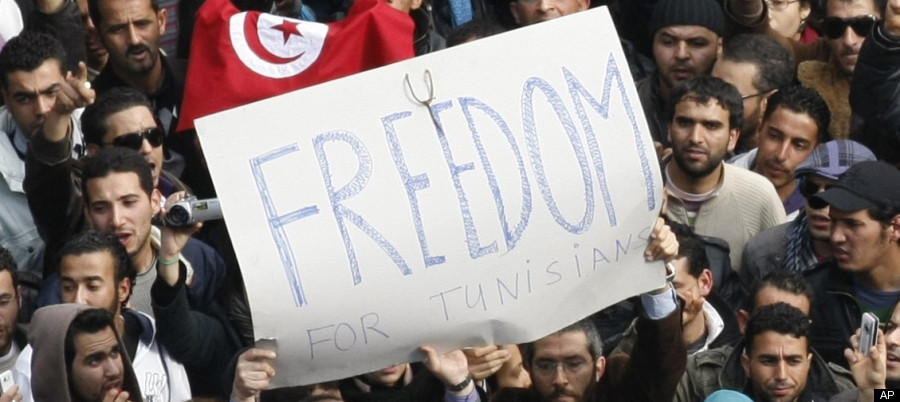|
|
Post by lakhota on Jan 15, 2011 2:55:35 GMT -5
 Tunisians didn't need any more reasons to protest when they took to the streets these past weeks -- food prices were rising, corruption was rampant, and unemployment was staggering. But we might also count Tunisia as the first time that WikiLeaks pushed people over the brink. These protests are also about the country's utter lack of freedom of expression -- including when it comes to WikiLeaks. Tunisia's government doesn't exactly get a flattering portrayal in the leaked State Department cables. The country's ruling family is described as "The Family" -- a mafia-esque elite who have their hands in every cookie jar in the entire economy. "President Ben Ali is aging, his regime is sclerotic and there is no clear successor," a June 2009 cable reads. And to this kleptocracy there is no recourse; one June 2008 cable claims: "persistent rumors of corruption, coupled with rising inflation and continued unemployment, have helped to fuel frustration with the GOT [government of Tunisia] and have contributed to recent protests in southwestern Tunisia. With those at the top believed to be the worst offenders, and likely to remain in power, there are no checks in the system." Of course, Tunisians didn't need anyone to tell them this. But the details noted in the cables -- for example, the fact that the first lady may have made massive profits off a private school -- stirred things up. Matters got worse, not better (as surely the government hoped), when WikiLeaks was blocked by the authorities and started seeking out dissidents and activists on social networking sites. As PayPal and Amazon learned last year, WikiLeaks' supporters don't take kindly to being denied access to the Internet. And the hacking network Anonymous launched an operation, OpTunisia, against government sites "as long as the Tunisian government keep acting the way they do," an Anonymous member told the Financial Times. As in the recent so-called "Twitter Revolutions" in Moldova and Iran, there was clearly lots wrong with Tunisia before Julian Assange ever got hold of the diplomatic cables. Rather, WikiLeaks acted as a catalyst: both a trigger and a tool for political outcry. Which is probably the best compliment one could give the whistle-blower site. wikileaks.foreignpolicy.com/posts/2011/01/13/wikileaks_and_the_tunisia_protests |
|
|
|
Post by lakhota on Jan 15, 2011 3:15:40 GMT -5
 Protestors Oust Tunisian Strongman After 23 Years Of Iron-Fisted Rule Protestors Oust Tunisian Strongman After 23 Years Of Iron-Fisted Rule Tunisia has been rocked by riots recently over unemployment and corruption, thought to have been sparked by the suicide of a young man who could not find a job and was barred from selling fruit without a permit. The unrest culminated today with the ouster of president and strongman Zine El Abidine Ben Ali. Prime Minister Mohammed Ghannouchi announced on state television that he had taken control of the country. A cable released by WikiLeaks called Tunisia a "police state" and criticized Ben Ali for being out of touch with the people. This has fueled references to the current protests as a "WikiLeaks Revolution." You can follow live updates of events in Tunisia here. www.huffingtonpost.com/2011/01/14/tunisia-revolution-live-u_n_809294.html |
|